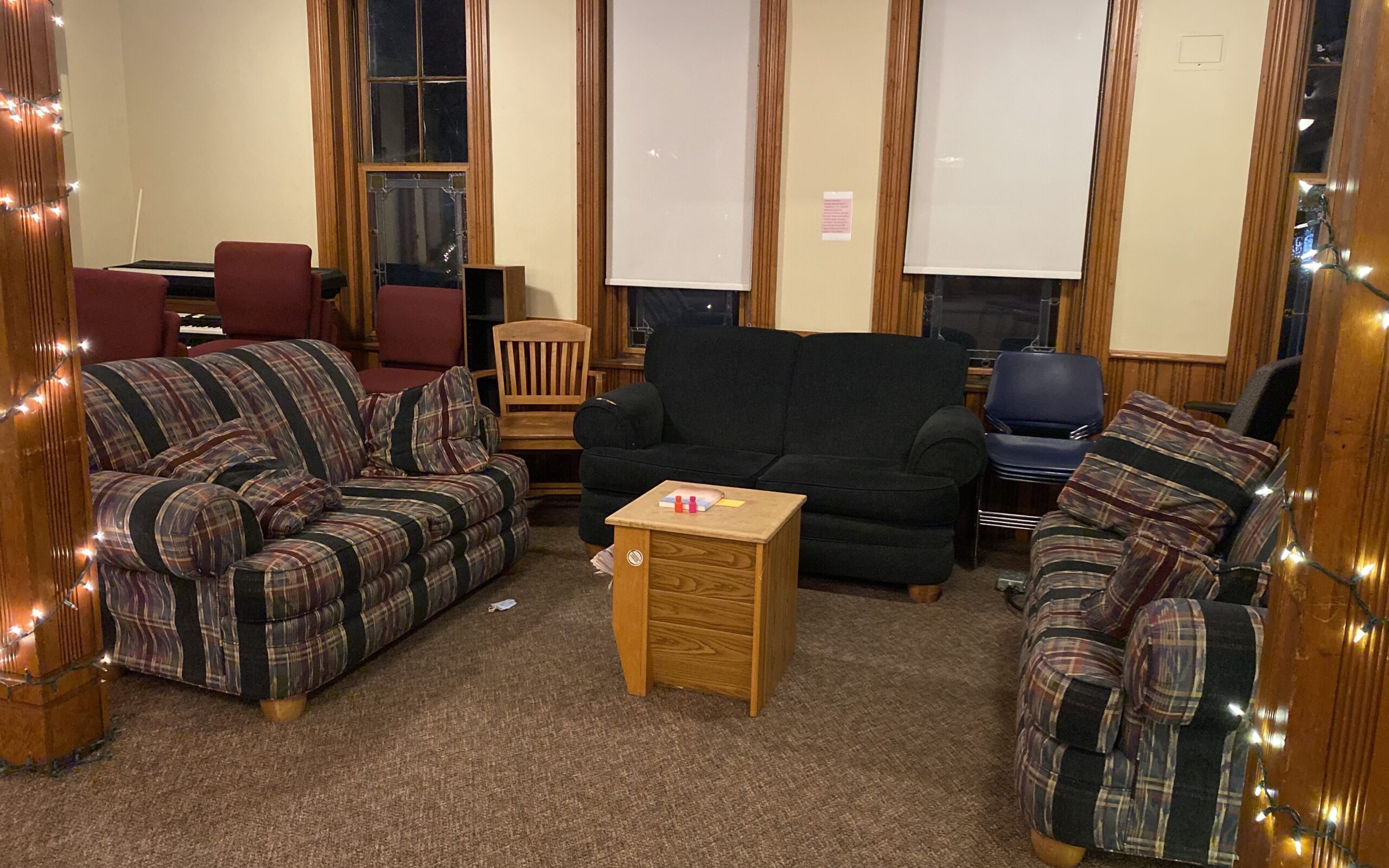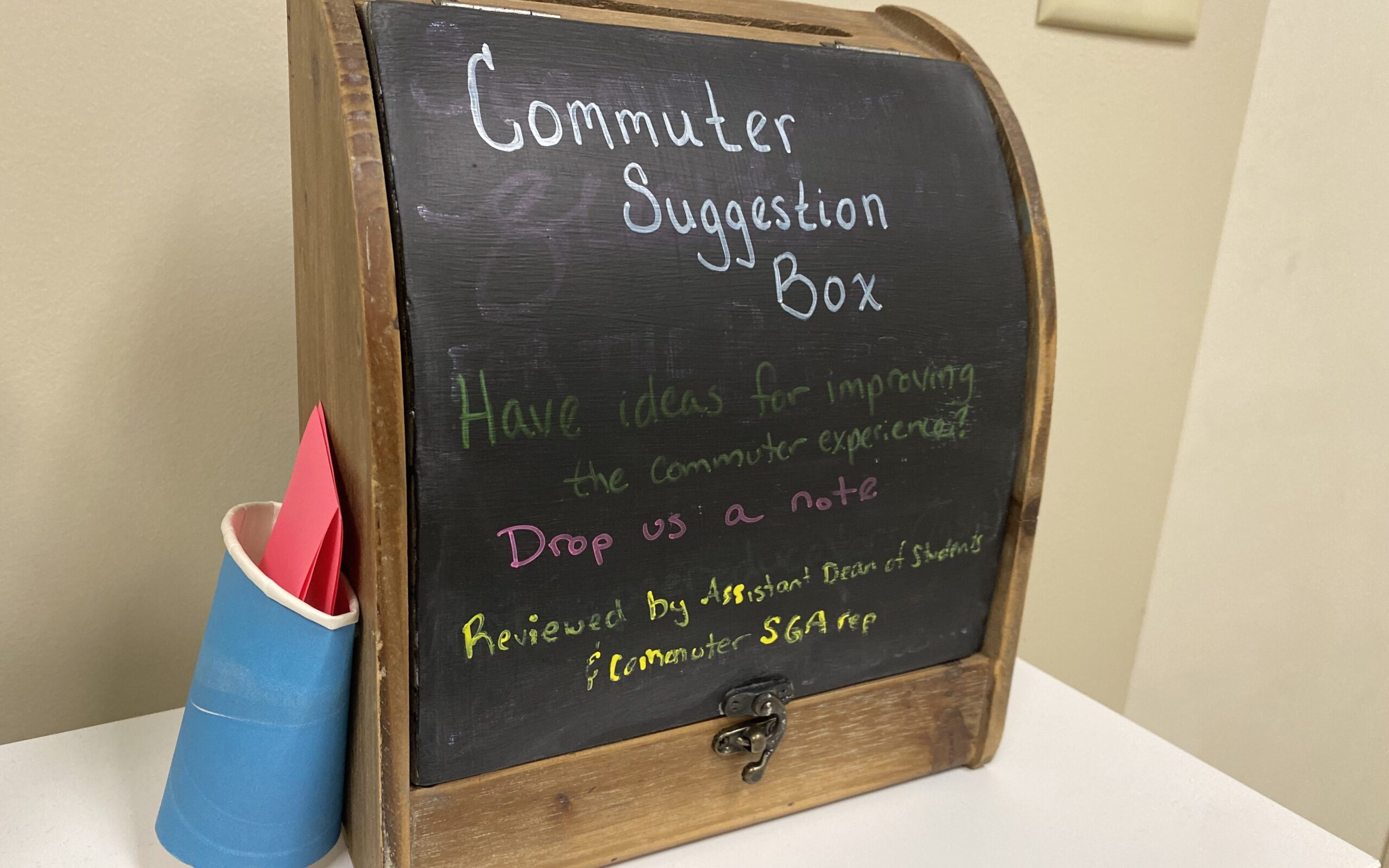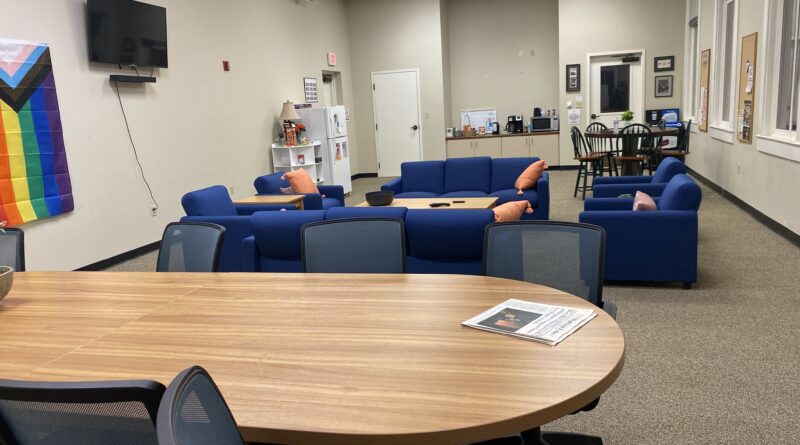Students and staff work to offer support and encourage commuter connections on campus
While almost a third of the student body at Maryville College commutes to campus, their representation in MC activities and organizations is shockingly low, despite inclusion efforts made by SGA and faculty members.
By the nature of their off-campus residence, commuters face different, and sometimes larger, hurdles that can prevent them from taking part in activities. Organizers say that inconvenient meeting times and the restrictive nature of the community shared by residential students often lead commuter students to overlook areas where they can be more involved. From their first Maryville College experience, commuter students’ paths diverge from their on-campus peers.
During the application and admissions process, each Maryville College student decides whether to enroll as a residential student or as a commuter. In order to qualify as a commuter student at MC, certain requirements must be met.
According to Jessica White, interim assistant dean of students, each commuter student “must have an approved commuter form through Residence Life” and meet at least one of the following criteria: must be either 23 years of age or older, a fifth-year senior, living with parents or guardians in the surrounding area, parenting or primary caretaker[s] of dependents, or be married.
With these requirements in mind, students opt to commute for many different reasons. Financially, commuting is a more affordable option for a lot of students, including commuters Breckyn Creel (‘26) and Austin McKee (‘26). There are also a myriad of other benefits that commuter students find outweigh those of residential life.
“Money is a big factor,” McKee said. “I also have freedom to do whatever I want after I leave campus, and I save so much more money on food because I don’t have a meal plan here.”
The commuter meal plan is another option for students, providing 25 meals for $250. This is the same price as a meal swipe at Pearsons Hall but also tacks on additional FLEX dollars, which can be used at the Scots C-Store for other necessities.
While commuting has its benefits, there are also certain drawbacks, including less involvement from these students in campus activities, club participation and hall events, McKee pointed out. It is also difficult for commuter students to find a schedule that works for their needs as well as allows them to be involved.
“Scheduling is always a hardship, particularly around getting involved or attending events,” White explained. “There is a balance to be found between evening events to minimize conflict with classes, and day events to minimize someone’s need to come back to campus.”
“The other hardship is that this group is not a monolith. Some face challenges of childcare, […] driving significant distances, […] or food insecurity. The biggest challenge is that there is not a singular challenge,” White added. “The solutions emerging are meant to be multi-faceted and as diverse as the commuter population.”
Another challenge is commuting time, which varies for each student depending on how far away they live from campus, but can be an obstacle that prevents them from getting involved in clubs or attending events. It can also present other challenges for students with early classes, as it adds additional responsibility and time commitments each morning.
“Commuting takes up time. Getting to my 8 a.m. classes is the worst thing in the world,” Creel said, adding that a work-around for commuters in similar situations is to find people to bunk with on campus.
When it comes to transportation, there is also the added problem of parking spaces on campus for commuter students. While it is an often-discussed issue among residential students, parking is a universal difficulty at the school.
“Commuter parking is more limited than residential, but we try to make maps,” said Savannah Mahery (‘24), another MC commuter student and chairperson of the contemporary student community.
These maps, she added, are distributed to commuters and show the parking options that will not result in a citation.
Whether the obstacle is scheduling, time of day, transportation and parking problems, or lack of welcoming spaces, the MC commuter representatives and staff members are working to increase involvement among contemporary students.
Mahery is currently in the process of assessing the wants and needs of commuters, and finding solutions to some of their problems. In January, the Today@MC emails — daily bulletins distributed to students — advertised a link to a survey that commuter students were encouraged to fill out.
“The survey is getting a minimal baseline of what contemporary students want,” Mahery explained. “We need to better market clubs, organizations and events. We want to have a meet-and-greet with commuters and other contemporary students to handle their problems.
“We are hoping more changes can be made next semester, with the survey,” said Mahery.
Often, commuters come to campus for their classes each day and leave when those classes are done, Mahery added. This limits the ability of these students to attend events, especially if they aren’t aware of the events on campus before making their morning commute.
“Commuter students have issues fitting in,” Mahery said. “Between classes, they don’t know what to do, and it’s hard for them to find their people.”
However, there are many solutions to some of the common problems seen among the commuter population. With areas around campus open to all students, commuters do have options. This includes the spaces on campus designated for studying and productivity, like both library levels of Thaw Hall, as well as the Center for Campus Ministry (CCM). Both of these buildings are open to all students and accessible throughout the day.

The Commuter Lounge is also accessible to these students. Located in Room 201 of Bartlett Hall, this lounge has undergone some updates this semester to improve the atmosphere and help support commuter needs. McKee, an SGA commuter representative, is working with White to create comfortable spaces like the Commuter Lounge that encourage these students to feel welcome on campus at any time of day — not just during their classes.
While the lounge is open to both residential and commuter students, it is oriented towards the needs of the latter.
The lounge is open when Bartlett hall is open (7:30 a.m. to midnight) and offers snacks, a TV, couches, a conference table and chairs, a white board, resources, fliers with upcoming events, a fridge and a microwave.
A suggestion box sits next to the door, and students are encouraged to offer their feedback on what improvements they would like to see in the space. White checks the box weekly to see if anyone would like to see something new included in the space, and connects with the SGA commuter representative.

McKee has also focused on updating the lounge this semester as part of his role in SGA.

White works to support the SGA representatives and make sure that the commuter needs are being met in other ways as well. According to White, thanks to SGA and a gift through Advancement, they were able to expand the Scots Supply closet, which helps address basic student needs.
When getting involved on campus, there are other options for commuters that extend beyond just this lounge. Creel, who transferred to MC this academic year, has put in a lot of effort to meet people and make connections on campus.
“It was easy for me because I’m naturally a social person,” Creel explained. “I think a lot of commuter students don’t participate in hall events, and sometimes a lot of commuter students don’t know what’s going on on campus.
“It is helpful to have a space to keep your stuff,” she added. “Renting out a locker in Bartlett makes a big difference. Go out there and meet as many people as possible because those people who live here are going to help you get connected with events you may not know about on campus.”
The other pieces of advice from commuter students is in resounding agreement. They say that the key to success on campus is meeting people, attending events and finding the clubs and activities that you enjoy.
Mahery emphasized the fact that commuters still have the power to meet people and find things that bring them joy on campus.
“They have their established life outside of school,” Mahery said. This might make it harder to create time in their schedules, but Mahery still encourages commuter students to get involved.
“Attend as many events as you can,” she added. “And check your email at 7 a.m. every day.”
Those sentiments are echoed by both Creel and McKee. While many MC clubs and organizations use social media platforms like Instagram to communicate about events and opportunities for students, the most effective way of receiving direct messages with relevant information is through a school email account.
“So many people don’t check out the Today@MC,” McKee said. “Just check through it every morning when you wake up. Sometimes, there is stuff specifically for commuters.”
McKee also wants commuters to know that there are resources available to them that they may not be aware of.
“Reach out to me, please,” he said. “You can show up to any SGA meeting, and we have a student voice form where you can talk about your concerns. [You can] propose a bill to get something passed that you want on campus.
“Communicate to us how you feel about being here. If you are a part of a committee in SGA, you can help,” he added. “Commuter students’ voices are just as important as residential students. If you are a commuter student, please make your voice heard. You are still paying tons of money to do that.”
According to White, the first way to get connected is for commuters to use the Commuter Lounge and other resources on campus, including her support, and the support of commuter SGA representatives. Students with questions or concerns are encouraged to seek her out for solutions. White also encourages students to stop by the Dean of Student’s Suite to tell them what they’re interested in regarding.
Students can also apply to help the incoming class of commuters by offering their support as a peer mentor for next year. When reaching out to see the opportunities they have to make a difference on campus, commuters are also strongly encouraged to become involved with the Student Government and talk to their representatives.
“We want to encourage commuters to learn who their representatives are,” Mahery said. “Any issue they have, they can come to us.
“I wish commuters knew that they are seen as students too,” she added. “They are welcomed. There’s no difference other than where you sleep.”

